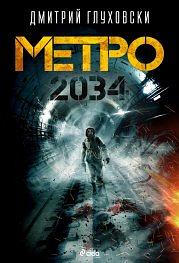Take a photo of a barcode or cover
As a standalone book I would have found this a lot better. I was hoping it was a continuation of Metro 2033. Still enjoyable but I liked 2033 much more.
Apocalyptic, philosophical, disheartening yet hopeful. Horrible human nature in a nutshell. A warning message for all.
fast-paced
adventurous
challenging
dark
emotional
hopeful
informative
mysterious
sad
tense
medium-paced
Plot or Character Driven:
A mix
Strong character development:
Yes
Loveable characters:
Yes
Diverse cast of characters:
Yes
Flaws of characters a main focus:
Complicated
I am still debating whenever it's a 3 or 4 star for me. I will come back to properly rate it and probably actually review it in a few days once the story settles in my head. There are things I loved and things I hated
adventurous
dark
medium-paced
Plot or Character Driven:
Character
Strong character development:
Yes
Loveable characters:
Complicated
Diverse cast of characters:
No
Flaws of characters a main focus:
Complicated
adventurous
dark
emotional
funny
mysterious
tense
medium-paced
Plot or Character Driven:
A mix
Strong character development:
Yes
Loveable characters:
Yes
Diverse cast of characters:
No
Flaws of characters a main focus:
Yes
I returned to the Moscow Underground. Ironically, Metro 2034 is the sequel to Metro 2033! When I listened to the first book in the trilogy my setting was perfect - it was November and the dark, cold, commutes and dog walks were the perfect environment to experience the dystopian nightmare playing out in the post-war subway stations and tunnels of Moscow. I listened to the sequel on some of the longest, brightest days of the year, which didn't match the book's setting but the writer so perfectly depicts the settings of these books that it didn't matter. You feel like you are there.
Metro 2034 is more of a standalone book than a sequel. Only two characters from Metro 2033 returned for this book- Artyom, the protagonist of the first book in a very limited role, and the militant madman, Hunter. The sequel has three main characters: the aforementioned Hunter, who is on a mission to find out what caused his home station, Sevastopolskaya Station, to lose contact with some of the central stations it traded with; Homer, an old man writing a history of the Underground and who decides to join Hunter on his quest; and Sasha, and orphaned teenage girl fleeing the station she and her father were banished from. Along the way they meet a plethora of interesting characters, experience a gamut of post-nuclear horrors, and discover the reason for the loss of communication.
When I read Metro 2033 I printed out a map of the Moscow Underground to follow the path of Artyom's quest, there were so many stations visited and I became disoriented. In the sequel, the plot moved slower and less stations were visited so I was able to keep my bearings without my map. The author is particularly good at character development and world building. I've read a lot of dystopian novels but nothing like these two.
I listened to both books on Audible and the narrator, Rupert Degas, was great. All of the characters had variations of Russian accents and I was able to follow along easily. I hope he narrates the finale, Metro 2035 which I am looking forward to using my next Audible credit on.
I didn't like this as much as Metro 2033 but I'm rounding my 3.5 star rating to 4 stars because of the great writing. and compelling mystery.
Metro 2034 is more of a standalone book than a sequel. Only two characters from Metro 2033 returned for this book- Artyom, the protagonist of the first book in a very limited role, and the militant madman, Hunter. The sequel has three main characters: the aforementioned Hunter, who is on a mission to find out what caused his home station, Sevastopolskaya Station, to lose contact with some of the central stations it traded with; Homer, an old man writing a history of the Underground and who decides to join Hunter on his quest; and Sasha, and orphaned teenage girl fleeing the station she and her father were banished from. Along the way they meet a plethora of interesting characters, experience a gamut of post-nuclear horrors, and discover the reason for the loss of communication.
When I read Metro 2033 I printed out a map of the Moscow Underground to follow the path of Artyom's quest, there were so many stations visited and I became disoriented. In the sequel, the plot moved slower and less stations were visited so I was able to keep my bearings without my map. The author is particularly good at character development and world building. I've read a lot of dystopian novels but nothing like these two.
I listened to both books on Audible and the narrator, Rupert Degas, was great. All of the characters had variations of Russian accents and I was able to follow along easily. I hope he narrates the finale, Metro 2035 which I am looking forward to using my next Audible credit on.
I didn't like this as much as Metro 2033 but I'm rounding my 3.5 star rating to 4 stars because of the great writing. and compelling mystery.








